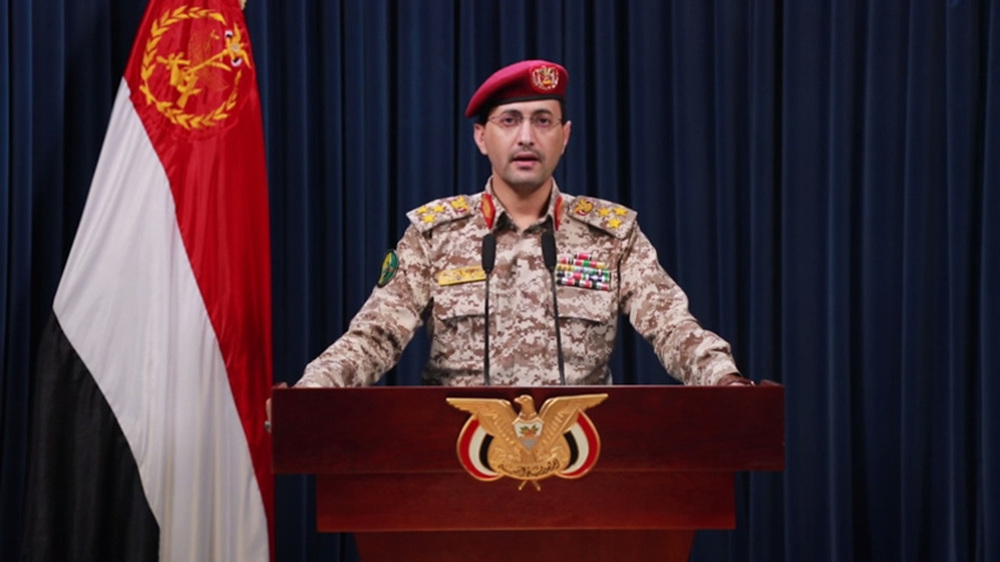UN urges investigation into Saudi killing of Yemeni schoolchildren
The United Nations has called for a thorough investigation into the killing of over a dozen civilians, including several schoolchildren, in an airstrike carried out by Saudi warplanes on a residential area in Yemen's west-central province of Sana'a.
At least 13 people were killed and 92 others sustained injuries after Saudi-led warplanes launched aerial assaults against an area in Sa'wan district in Sana'a province on Sunday evening, Yemeni Ministry of Public Health and Population said in the aftermath of the gruesome crime.
The ministry at the time said that most of the students had been schoolchildren, as the explosion occurred close to a school.
Other reports, however, including that of the UN, set the death toll on 11 victims, including five students.
On Monday, the UN humanitarian coordinator for Yemen, Lise Grande, voiced alarm at the “terrible, senseless deaths and injuries.”
“Every effort must be made to understand the circumstances that led to this tragedy.”
Saudi Arabia and a number of its regional allies launched a devastating campaign against Yemen in March 2015, with the goal of bringing the government of former President Abd Rabbuh Mansur Hadi back to power and crushing the Houthi Ansarullah movement.
According to a report by the Armed Conflict Location and Event Data Project (ACLED), a nonprofit conflict-research organization, the Saudi-led war has so far claimed the lives of about 56,000 Yemenis.
Children are among the most vulnerable victims of Saudi imposed war on Yemen. Back in October last year, a UN report showed that at least 1,248 Yemeni children had been killed and nearly the same number sustained wounds in airstrikes to the time since the onset of the imposed war.
One of the worst and most tragic cases of targeting Yemeni children occurred on August 9, last year, when Saudi-led warplanes hit a school bus as it drove through a market in the town of Dhahyan in the northern province of Sa’ada. The death toll included 40 children out of 51 people, while 56 of the 79 wounded were also kids.
In June 2016, the UN blacklisted the Arab kingdom after concluding in a report that Riyadh was responsible for 60 percent of the 785 deaths of children in the Saudi war on Yemen in the previous year. A few days later, however, the world body, then led by Ban Ki-moon, announced that Saudi Arabia would be taken off the list pending a joint review with the kingdom.
At the time, Ban acknowledged that he was forced to remove Riyadh from the blacklist after the regime and its allies threatened to cut off funding to many UN programs. The move triggered an outcry from human rights groups around the globe.
The war has also taken a heavy toll on the country’s infrastructure, destroying hospitals, schools, and factories. The UN has already said that a record 22.2 million Yemenis are in dire need of food, including 8.4 million threatened by severe hunger. According to the world body, Yemen is suffering from the most severe famine in more than 100 years.
VIDEO | Iran-Syria: For Resistance
Qassam Brigades claims killing 3 Israeli troops in northern Gaza
More alive than ever: Sayyed Hassan Nasrallah's legacy grows stronger in martyrdom
Occupation of Syria’s highest peak Mount Hermon part of ‘Greater Israel’ project
Iran: Syrian people will decide their future without foreign interference
IRGC says Iran’s power exceeds borders, warns enemies to adjust themselves
Dozens detained, several wounded in Israeli raids in West Bank
‘Ethnic cleansing’: Hamas blasts Israeli attacks on Gaza hospital amid intl. silence













 This makes it easy to access the Press TV website
This makes it easy to access the Press TV website